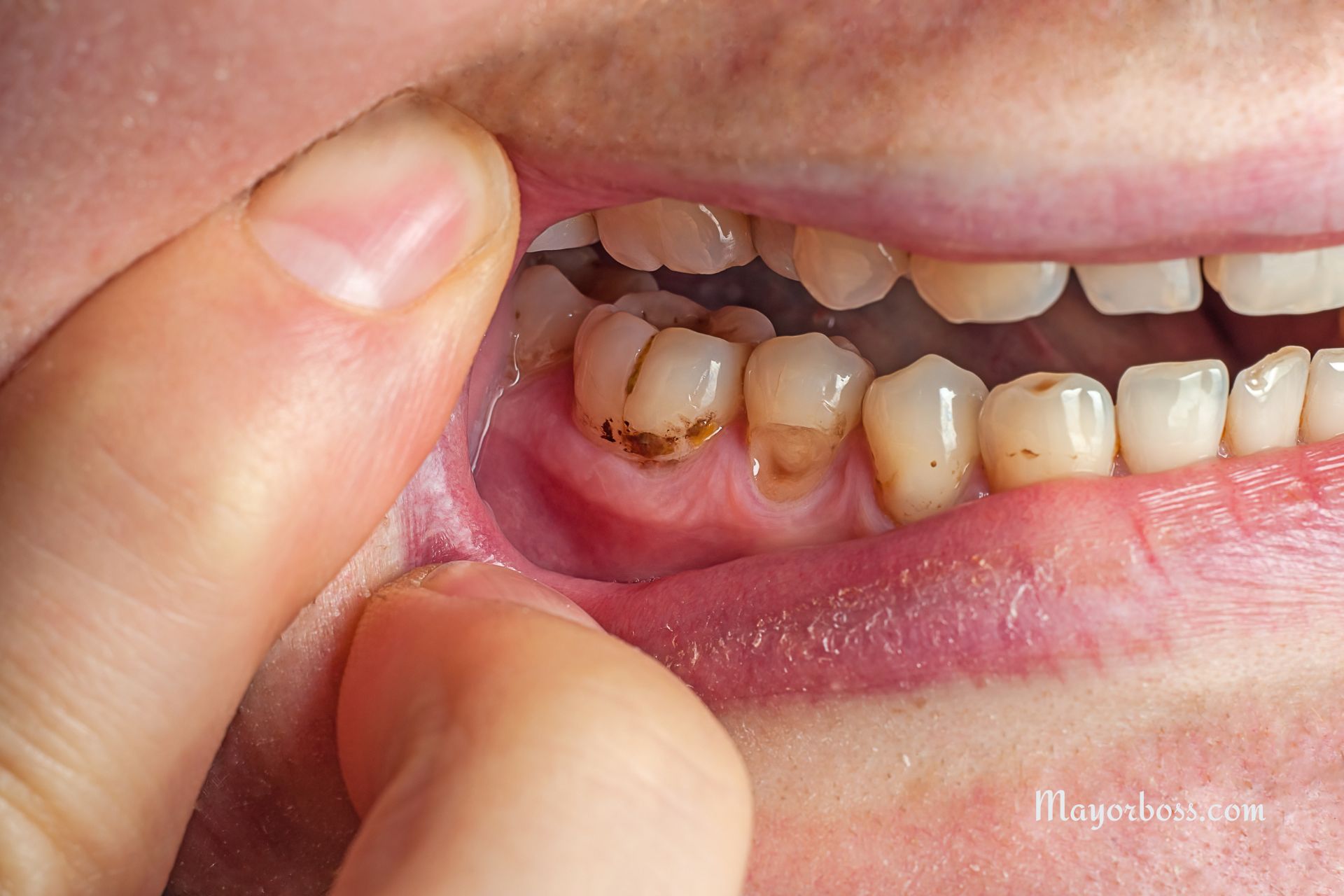Tooth Decay Could Shorten Your Life: The Hidden Health Risks of Cavities
When most people think about tooth decay, they often consider it just a small, localized issue. After all, cavities are common, right? You might feel some discomfort, get it filled by your dentist, and carry on with life. However, tooth decay is much more than just an inconvenience. It can have a significant impact on your overall health, and if left untreated, scientists believe it could even shorten your life.

Tooth decay is not just about losing a tooth—it can lead to more serious issues
Tooth decay starts as a small problem—a tiny hole in your tooth caused by bacteria eating away at the enamel. But if you don’t address the cavity, it doesn’t just stay in your mouth. As bacteria multiply, they can penetrate deeper into the tooth, reaching the pulp, the living tissue of the tooth, which includes nerves and blood vessels. Once this happens, the infection can spread beyond your mouth, leading to a host of other health problems.
Bacterial infections from untreated cavities can spread throughout the body
One of the hidden dangers of cavities is that oral bacteria can travel from your mouth to other parts of your body through the bloodstream. These bacteria may cause infections in vital organs like your heart, lungs, or brain. Endocarditis, for example, is a serious condition where bacteria from the mouth infect the lining of the heart, which can be potentially life-threatening.
Untreated cavities can trigger respiratory infections
According to research, poor oral health is also linked to respiratory problems. If you have untreated cavities, the bacteria in your mouth can be inhaled into your lungs. This can lead to pneumonia or worsen chronic obstructive pulmonary disease (COPD), especially in elderly people or those with weakened immune systems.
Tooth decay could increase your risk of diabetes and heart disease
You’ve probably heard about the connection between diabetes and gum disease, but tooth decay can also worsen diabetes. When your gums are inflamed, and your teeth are decaying, it can make it harder to control your blood sugar levels. Additionally, multiple studies have shown that poor oral health can increase your chance of cardiovascular disease. Plaque buildup on your teeth is similar to the plaque that can build up in your arteries, leading to atherosclerosis, a major risk factor for heart attacks and strokes.
Poor oral health has been linked to dementia
It may sound surprising, but there’s growing evidence that oral health may be linked to brain health. Chronic inflammation caused by gum disease and tooth decay has been associated with a higher risk of cognitive decline and dementia, and according to research conducted by National Institute on Aging (NIA) scientists, people with poor oral health had a higher risk of developing Alzheimer’s disease. The theory is that inflammation and bacterial infections from the mouth can affect the brain over time, contributing to the development of neurodegenerative diseases.
Cavities can weaken your immune system, making you more susceptible to illness
Your immune system is constantly working to protect you from infections. However, if you have untreated cavities, the chronic inflammation in your mouth can weaken your immune response. This means that your body is using more resources to fight off the oral infection, leaving you more vulnerable to other infections. As a result, you may get sick more often or take longer to recover from illnesses.
The health of your mouth is fully linked to your overall health
It’s essential to understand that oral health and general health are interconnected. Your mouth is the gateway to your body, and what happens in your mouth doesn’t stay there. In fact, many systemic diseases first show up in the mouth as signs or symptoms. So, if you neglect your oral health, you’re essentially neglecting your entire body.
Regular dental visits can help prevent life-threatening complications
Regular visits to the dentist can help catch problems like cavities early before they become more serious. Your dentist can clean plaque off your teeth, check for early signs of decay, and treat issues promptly. This simple act can prevent a cascade of health problems later on, including infections, heart disease, and respiratory issues.
Takeaway
Cavities might seem like a small problem, but they can have hidden health risks that extend far beyond your mouth. From bacterial infections to heart disease, and even dementia, untreated tooth decay can have serious consequences. That’s why it’s crucial to maintain good oral hygiene—brush your teeth twice a day, floss daily, and visit your dentist regularly. After all, taking care of your teeth is not just about preserving your smile—it’s about protecting your life.
